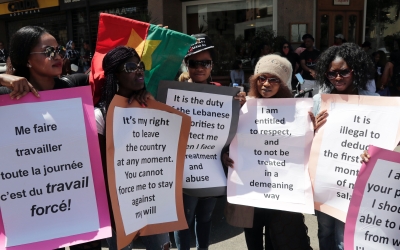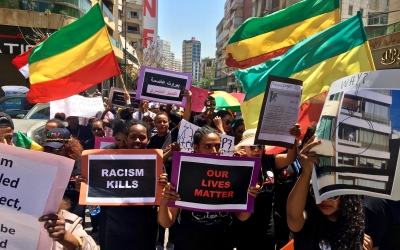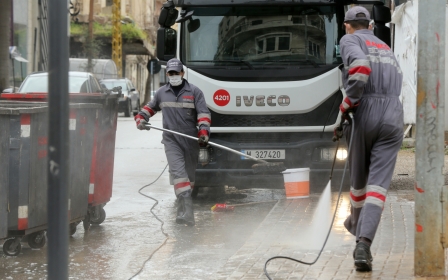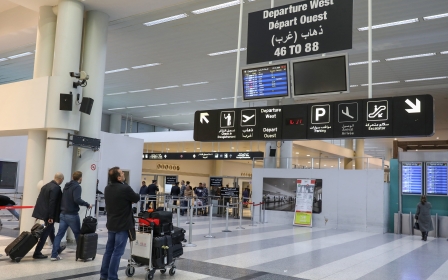Coronavirus: Lebanon provides temporary shelter to dozens of stranded Ethiopian workers

Lebanon has provided temporary shelter for 35 stranded Ethiopian domestic workers who had camped outside their consulate after being abandoned by employers, the Ministry of Labour said Thursday.
"We provided this shelter to get them off the street and we are now in touch with international agencies and the Ethiopian consulate to look for a long-term solution," ministry spokesman Hussein Zalghout told AFP.
Lebanon is in the midst of its worst economic crisis since the 1975-1990 civil war, compounded by a lockdown to stem the spread of the coronavirus pandemic.
In recent weeks, dozens of Ethiopian women have camped outside their consulate in Beirut. They include those who were abandoned by their employers without pay or passports, as well as undocumented migrants and day labourers who have been unable to find work, according to Amnesty International.
Employers to be punished
Labour Minister Lamia Yammine Douaihy condemned on Wednesday the "unfortunate scene" outside the consulate and pledged to take necessary measures against employers.
"[Employers] who left migrant workers stranded in front of the consulate will be punished by law and will be placed on a blacklist that prevents them from hiring foreign domestic workers again," Zalghout said.
He added that the ministry would press employers to settle all outstanding payments they owe their domestic workers before they are repatriated, or face legal repercussions.
Last month, Lebanon's General Security Agency said it had started organising repatriation flights for those who wished to return home.
On 21 May, dozens of Ethiopian workers were repatriated, Lebanon's state-run National News Agency reported.
However, the Ethiopian government has come under fire for demanding $550 fees from nationals seeking to return home from Lebanon - an exorbitant sum given many workers' low salaries and the dramatic devaluation of Lebanese currency since October - only to cancel repatriation flights.
Abusive 'kafala' system
Lebanon has nearly 250,000 migrant domestic workers, the vast majority of them women. They are given the right to work in the country via the kafala system, a common form of sponsorship used across the Middle East that ties the legal residency of migrant workers to their employers.
The system has come under scrutiny in recent years for leaving workers vulnerable to exploitation and abuse.
It was estimated in 2017 that at least two migrant domestic workers died every week due to suicide or failed escape attempts in Lebanon.
While workers under Lebanon's labour law are guaranteed certain rights, under the kafala system, if an employer ends a contract with a domestic worker - even in cases of abuse - the worker loses their migration status.
The kafala system directly contradicts labour law, with rights groups repeatedly pointing out that it puts far too much power in the hands of the employer or sponsor, known as the kafeel.
The system is not legally binding but is a traditional mechanism that seems to have taken precedence over labour law and has led to the abuse of workers' rights.
In April, Amnesty International urged Lebanon to protect migrant domestic workers during the coronavirus pandemic, warning they were at increased "risk of exploitation and other forms of abuse".
The UK-based rights group called on the country's Ministry of Labour to start handing out penalties to employers who exploit workers, establish a hotline for reporting abuse and roll out health care and testing for all workers even if they are undocumented.
Middle East Eye propose une couverture et une analyse indépendantes et incomparables du Moyen-Orient, de l’Afrique du Nord et d’autres régions du monde. Pour en savoir plus sur la reprise de ce contenu et les frais qui s’appliquent, veuillez remplir ce formulaire [en anglais]. Pour en savoir plus sur MEE, cliquez ici [en anglais].






